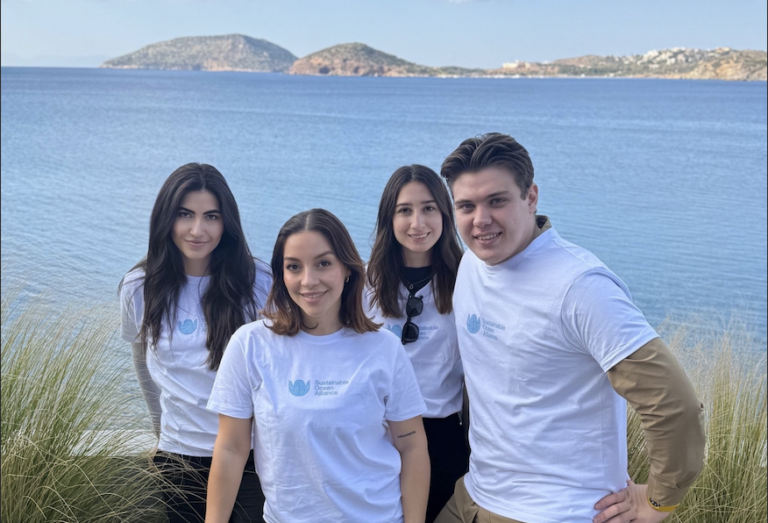The six PASOK leadership candidates have resumed their tours across Greece following the pivotal televised debate, a key moment that continues to shape their campaigns, as they assess both gains and setbacks.
Just hours after the first and only debate ahead of the initial round of the internal party elections, the candidates and their teams are working to analyze the results and correct any missteps in time. Despite some expressing satisfaction with their candidates’ performance, anxiety is palpable in all six camps.
While no one can confidently predict the debate’s impact on each candidate’s trajectory, seasoned political operatives have already begun evaluating the situation and placing early “bets” on the outcome of the elections, set to take place on October 6 and October 13. Surprises are not being ruled out, both in terms of which two candidates will advance to the second round and the final ranking of the six contenders. Betting markets still show a tight race between Nikos Androulakis and Charis Doukas, with Pavlos Geroulanos gaining momentum after the debate, now appearing in third place ahead of Anna Diamantopoulou. Meanwhile, polling firms are continuing to explore trends and forecast potential scenarios.
Nikos Androulakis, through his team, believes his debate strategy was successful, showcasing his political and programmatic strengths over his rivals. His supporters highlight his composed performance, clear responses, and error-free delivery, presenting him as the candidate who can lead PASOK back to power. One of his associates pointed to his comment directed at Doukas, stating, “He’s not Mitterrand, and thankfully not Erdogan,” arguing that voters will ultimately decide whether Doukas’ decision to run, just months into his mayoral term, was the right move.
Androulakis views Doukas’ election as Athens Mayor as part of the broader renewal effort he initiated within PASOK. He emphasized this point to his supporters while criticizing Pavlos Geroulanos for not accepting his proposal on the loan bill. Androulakis remarked, “When the Minister of Economy presents a loan register program, unaware that this very position is already part of PASOK’s platform, it’s a bit absurd.” He also addressed the exchange between Geroulanos and Anna Diamantopoulou regarding attendance in PASOK, noting, “I understand the comments about breaks in attendance and the delay in joining our organization.”
Despite Androulakis’ confidence, critics argue that he avoided serious self-reflection during the debate, failing to convincingly outline how he plans to lead PASOK into government. They also recall that he fell short of his goal for the European elections, missing the declared target of securing second place. Additionally, they point out that the decision to hold leadership elections followed a tumultuous Political Council and parliamentary group meeting, during which many members harshly criticized the party’s leadership and direction.
Members of Charis Doukas’s team, countering claims that the Athens mayor underperformed in terms of his “image” during the televised debate, argue that Doukas avoided making divisive statements and instead focused on presenting clear programmatic positions that address citizens’ concerns. They emphasize that his approach was aimed at preserving party unity.
Responding to Nikos Androulakis’s remarks during the debate, in which Androulakis referred to himself as the favorite, Doukas pointed out in an interview with Real FM: “Let me remind you, I was the Secretary of the Energy Sector under the late Fofi Gennimata during extremely difficult times, and we accomplished a great deal. I continued this work with Nikos Androulakis, and together we faced the challenges of the energy crisis.”
Regarding his candidacy for Athens mayor, Doukas recounted, “During meetings, people were saying, ‘How are we going to break the news to him? He’s crazy to accept it.’ Yet I accepted it because I’ve always been a soldier, always ready to lead from the front. I announced my candidacy on August 3, and by the end of the month, I had to present the ballots. At the time, many were hiding, calling it political suicide. But I believe it’s crucial, especially in a major victory for the democratic party, not to overshadow its message—a message of hope.”
Responding to Mrs. Diamantopoulou’s yesterday’s invitations about alliances and positions in the municipality of Athens, he said: “Let us say, first of all, that I was always PASOK, I never left and perhaps Mrs. Diamantopoulou is confused because she had left 10 years ago and had made other political moves. You also remember the “Decision Time” with Mr Floridis and Mr Ragousis.”
As far as the PPC is concerned, my position is a PASOK position, I was the head of the energy sector, then you weren’t in PASOK so it makes sense that you don’t know that. #ERTDebate#pame_hari #debate pic.twitter.com/69TNxf5Ad2
– Haris Doukas (@h_doukas) September 24, 2024</blockquote
Anna Diamantopoulou still believes that the stakes of the PASOK elections are linked to the emergence of leadership with prime ministerial characteristics. She said it and repeated it twice in the debate, she underlines it all over Greece, in her private contacts with the people. The candidate for leader spoke specifically in the context of the debate about the direction the country should take and the plan to be implemented. She came under fire for her absence from party life for many years and responded by saying that there is life outside party boundaries and that she never left the social democratic party. Last night Mrs Diamantopoulou spoke to members and friends of PASOK in a packed hall in Heraklion, Crete, attended by members of the region.
Pavlos Geroulanos said he was fully satisfied – through his associates – with the presentation of his positions in the debate and that he avoided getting into unnecessary “cockfights”. His unsympathetic friends note that his statements on the outcome of a decision to appeal to the Hague were at least misguided, reiterate that he did not know that the loan bill was included in PASOK’s programme and that his proposals on the functioning of the committees in parliament fell on deaf ears, at least as ‘unreadable’. Mr Geroulanos, however, is estimated that with his presence in the debate he managed to reach a wider audience, from which he expects their support in the internal party ballot.
On Nadia Giannakopoulou’s end they see her momentum expanding, noting that the firing against Nikos Androulakis proves with each passing day that it was well-founded and that if she had not contributed to the start of the electoral process, the field for the change of page in PASOK would not have been created. Of course, her opponents claim that she showed “obsession” by continuing to hammer Nikos Androulakis with her answers to most of the six issues.
Michalis Katrinis Michalis Katrinis, on the other hand, emphasized foreign policy issues, appeared as the spokesman for the “patriotic PASOK” and tried to “concrete” the audience he was addressing, starting from his constituency and Western Greece.
Ask me anything
Explore related questions





